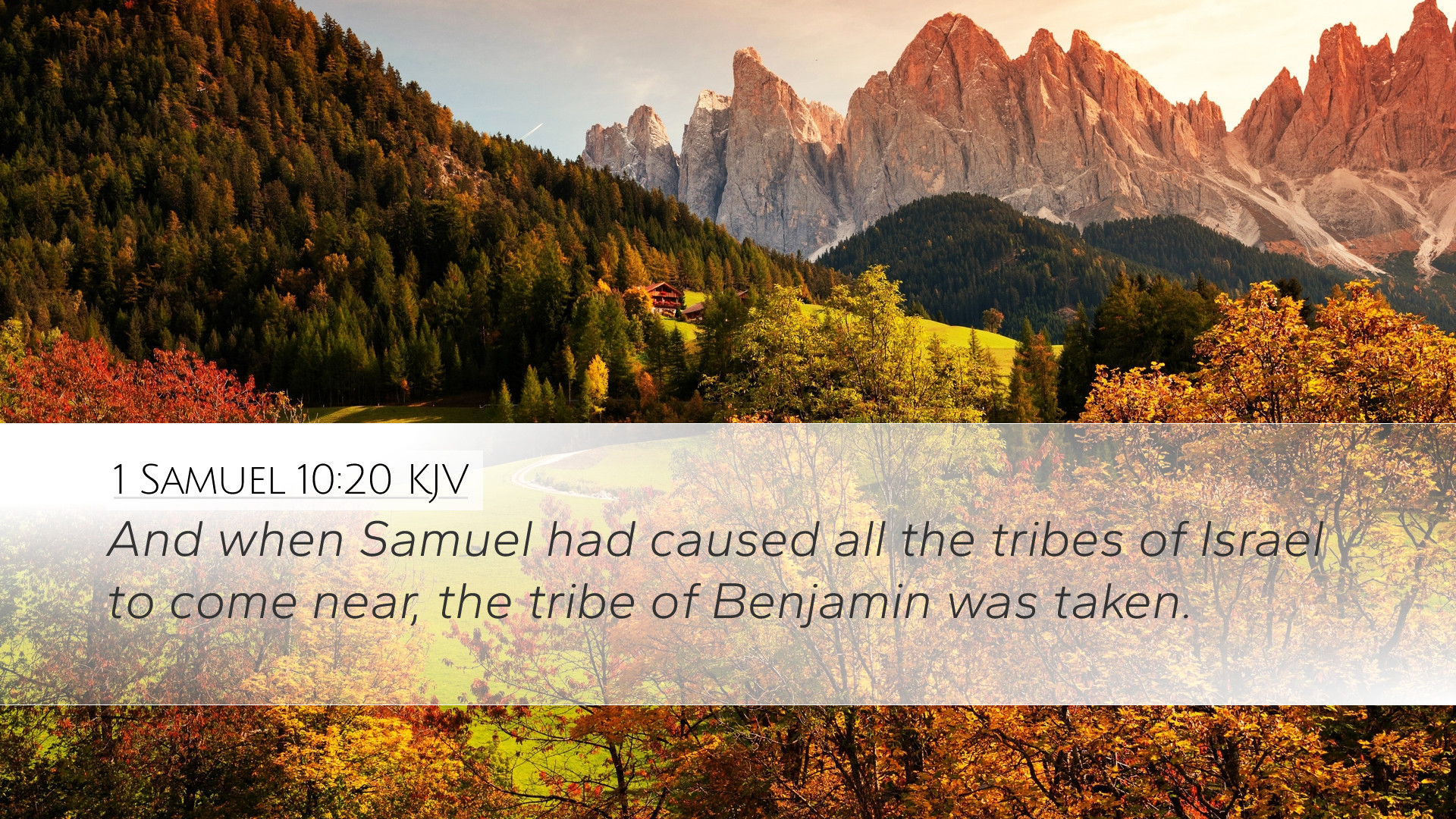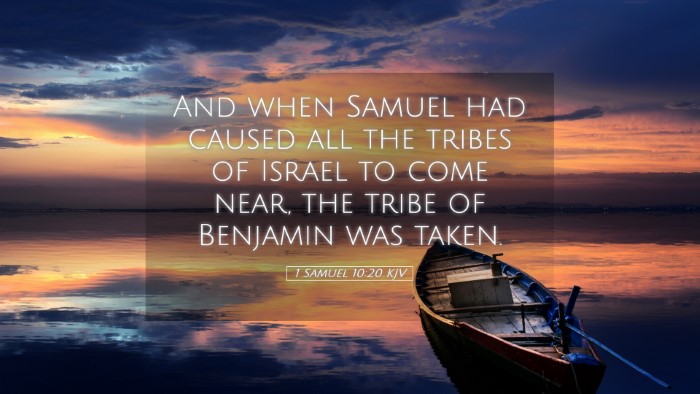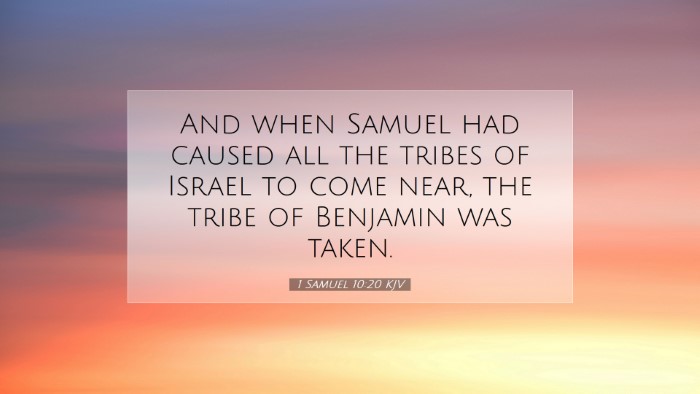Commentary on 1 Samuel 10:20
1 Samuel 10:20 states: "And when Samuel had caused all the tribes of Israel to come near, the tribe of Benjamin was taken." This verse marks a pivotal moment in the history of Israel as they transition from a theocratic system to a monarchy.
Contextual Analysis
This incident occurs after God instructs Samuel to anoint Saul as king. To understand the significance of this moment, we must consider the cultural and spiritual dynamics at play.
-
Samuel’s Role:
Samuel, as a prophet and judge, serves as the last leader before the monarchy. His guidance is crucial in transitioning Israel from its tribal confederation to a centralized leadership under the king. His obedience to God’s command showcases his steadfastness and commitment to divine instruction.
-
Tribal Selection:
The selection of the tribe of Benjamin is significant. The tribe, relatively small and often overshadowed by others, is chosen to demonstrate that divine election is not based on human wisdom or strength but rather on God's purpose and predilection.
-
The Importance of God’s Sovereignty:
This event emphasizes God's sovereignty in choosing leaders. The casting of lots reflects a reliance on divine providence, affirming the belief that leadership is determined through God's will. It highlights the theological premise that God appoints rulers to serve His purpose among His people.
Theological Implications
From a theological perspective, this passage opens discussions on the nature of leadership, governance, and divine selection.
-
Leadership and Divine Authority:
As pastors, theologians, and scholars reflect on this verse, they are urged to consider the intersection between spiritual authority and civil governance. Saul's anointing raises questions about how leaders are chosen and the divine endorsement they must carry to effectively govern God’s people.
-
God’s Unconventional Choices:
This selection demonstrates that God’s choices often defy human expectations. Benjamin’s selection serves as a reminder that God can use the least likely to accomplish His plans, uplifting themes of humility and divine favor. This point resonates across various narratives in scripture, suggesting a pattern of God’s surprising selection—not just of leaders, but of all who serve His purposes.
Insights from Commentaries
Matthew Henry Commentary
Matthew Henry draws attention to the solemnity of this occasion. He notes that the gathering of the tribes is a significant civic event demonstrating communal involvement in God's choices. He highlights the spiritual implications of this collective decision-making, urging us to consider the weight of communal prayer and discernment in leadership selection.
Albert Barnes Commentary
Albert Barnes elaborates on the process of the selection by lot. He emphasizes that this act underlies a deep-seated belief in God's providence interacting with human affairs. Barnes points out that this distinct method not only affirms God's control but also offers a model for decision-making processes in contemporary contexts, encouraging reliance on God’s guidance in leadership.
Adam Clarke Commentary
Adam Clarke explores the cultural aspects of tribal identity and the implications of Saul’s selection for the tribe of Benjamin. He articulates that Saul’s initial rise represents a blend of divine purpose and national aspiration, emphasizing that while God is sovereign, human engagement and desire play a significant role in the unfolding narrative of Israel's monarchy.
Practical Applications
As we reflect on 1 Samuel 10:20, there are several practical applications for modern-day followers of Christ.
-
Discernment in Leadership:
In light of this scripture, church congregations are encouraged to pray for wisdom and discernment when selecting leaders, recognizing that they are ultimately appointing individuals whom God has set apart.
-
Embracing God’s Choices:
Believers must be open to God’s choices in leadership, understanding that His plans often surpass human understanding. This requires a spirit of humility and readiness to support God's anointed leaders.
-
Community Involvement:
The gathering of the tribes showcases the necessity of community involvement in significant decisions. Churches should encourage open discussions and shared prayers concerning leadership, reflecting a commitment to God’s will among the congregation.
Conclusion
In summary, 1 Samuel 10:20 serves as a profound reminder of God’s sovereignty in leadership, the importance of community discernment, and the fascinating interplay between divine election and human agency. As we delve into the narratives of Scripture, may we always seek God’s wisdom and guidance in our own leadership and governance, striving to align our desires with His divine will.


